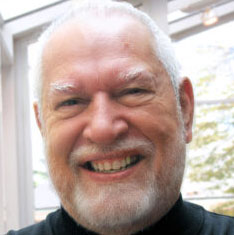For the first TWiV of 2020 we reveal that microbiome depletion with antibiotics alters the immune response to influenza vaccine, and how successive blood meals facilitate virus dissemination in mosquitoes and transmission potential.
From the University of Texas at Austin, Vincent and Rich speak with Chris Sullivan about his work on miRNAs encoded in the genomes of polyomaviruses and papillomaviruses, and how an RNA triphosphatase restricts hepatitis C virus replication.
Vincent speaks with virologists at the University of Nevada at Reno about their careers and their work on herpesviruses, arboviruses, and the development of diagnostics for infectious diseases.
Vincent speaks with members of Prometheus, a team of academic and industrial scientists assembled to develop antibody-based therapeutics against infections caused by tick-borne Crimean-Congo hemorrhagic fever virus and rodent-borne hantaviruses, for which no approved vaccines or specific drugs are available.
Vincent speaks with Félix Rey about his career and his work on solving structures of a variety of viruses and the insights learned about viral membrane fusion and antibody-mediated neutralization.
From the 22nd meeting of the European Society for Clinical Virology in Copenhagen, Vincent speaks with Thea, Heli, Kim, Caroline and Irma about big data and its increasing use in virology diagnostics, epidemiology, and public health.
From the Fourth Symposium on Giant Virus Biology in Germany, Vincent, Rich, and Nels speak with Assaf, Stephen, and Alexandra about their careers and their work on giant viruses that infect ocean hosts: Emiliana huxleyi, Aureococcus anophagefferans, and a choanoflagellate.
From Georgia State, Vincent speaks with economics professor Paula Stephan about the ways science is supported in the US, how universities offload risks, the absence of risk-taking, and much more.
William Summers joins the TWiV team to discuss some virology history, including the ever-changing concept of ‘virus’ and the contribution of phage research to the study of animal viruses
Amy joins the TWiV team to review evidence that enterovirus D68 is an etiologic agent of childhood paralysis, and her finding that the ability of the virus to infect cells of the nervous system is not a recently acquired property.






